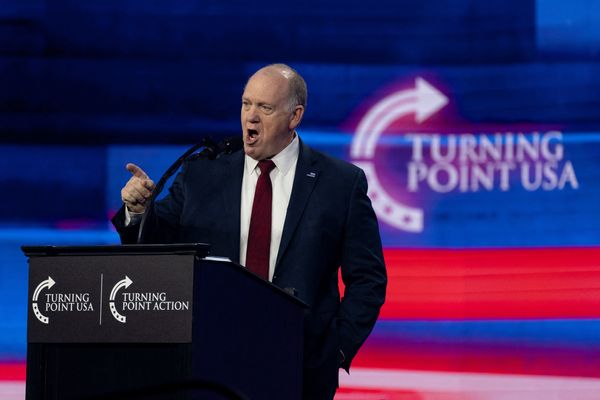
Judging by the number of high-profile CEOs getting increasingly strident about enforcing return-to-office mandates, it might seem remote and hybrid work are destined to decline while fully in-person work picks up. But most U.S. executives expect the opposite to happen, a new survey suggests.
According to the latest Survey of Business Uncertainty—jointly run by the Atlanta Federal Reserve Bank, the University of Chicago, and Stanford—executives expect 72.6% of full-time employees to be fully in-person/on-site in 2028, a decline from 75.7% today and 91.6% in 2018. When it comes to hybrid, they anticipate 16.3% of full-time employees will be in that category in five years, compared to 14.1% today and just 4.1% in 2018. As for fully virtual/remote, respondents expect 11.2% of full-time employees to fit that description in 2028, up from 10.2% today and just 4.3% in 2018.
"Maybe the best evidence that #WFH is here to say - CEOs and CFOs say so," Nick Bloom, a researcher involved in the survey and remote work guru at Stanford University, posted on X (formerly Twitter) this week, referring to work from home.
Return-to-office push
In general, then, U.S. executives are not expecting a return to pre-pandemic office life. Nevertheless, many high-profile firms are cracking down on remote work and insisting upon a full return to the office, despite resistance from employees reluctant to give up flexibility.
Goldman Sachs recently began a new push to enforce its policy of working from the office five days a week, with company leaders frustrated over a significant part of the workforce not coming in as much as directed.
JPMorgan Chase has asked its senior bankers to work from the office five days a week, with CEO Jamie Dimon warning about the downsides of long-term remote work.
Venture capitalist Paul Graham, a cofounder of the Silicon Valley startup accelerator Y Combinator, said in June that remote work “does work initially,” which is why it “fooled” leaders who have since “changed their minds.”
“I’ve talked to multiple founders recently who have changed their minds about remote work and are trying to get people back to the office,” he tweeted. “I doubt things will go all the way back to the way they were before Covid, but it looks like they will go most of the way back.”
At Amazon, where employees were told to come into the office three days a week, CEO Andy Jassy recently threw down the gauntlet, warning employees in a recording obtained by Insider: “It’s past the time to disagree and commit. And if you can’t disagree and commit, I also understand that, but it’s probably not going to work out for you at Amazon because we are going back to the office at least three days a week, and it’s not right for all of our teammates to be in three days a week and for people to refuse to do so.”
Betting on remote work
Yet examples also abound of company leaders bucking the RTO trend or betting that fully in-office work will continue to decline.
Zapier, whose software helps users work across apps in an integrated way, has reached a $5 billion valuation as a fully remote company since its founding in 2012, well before the pandemic. Its CEO, Wade Foster, believes startups that should be focused on product-market fit instead end up dealing with needless distractions, with office leases being chief among them. He also argues remote work allows companies to tap into a larger talent pool.
Pret A Manger CEO Pano Christou is skeptical about return-to-office mandates and confident the trend of remote work will continue. His coffee-and-sandwich chain is now targeting remote workers with its expansion into suburban areas.
Scott Farquhar, the billionaire CEO of Atlassian, which makes tools for software developers and project managers, recently said he only comes into the office “about once a quarter.” His firm, which has a market capitalization of around $49 billion, initiated a Team Anywhere policy in 2020 and has stayed with it. Flexible work lets employees manage increasing cost-of-living pressures by choosing to live in a cheaper location without worrying about how it might affect their work, he argues.
Firstbase CEO Chris Herd, whose software firm helps companies set up, manage, and retrieve equipment for remote workers, recently tweeted: “Companies that embrace work from anywhere will replace every company that doesn’t.” He likens the modern office to a “distraction factory” and insists remote work is where “focused work happens and outcomes are produced without distraction.”
And this month, New York Mayor Eric Adams essentially conceded defeat to remote work when announcing a plan to convert empty office buildings across the city into housing.
“We are in a different norm,” he said. “Everything has changed, and we have to be willing to change with it.”







